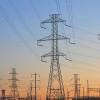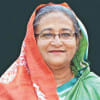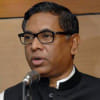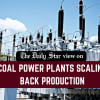Hasina hopes to build 2nd nuke power plant
Bangladesh will begin seeking bids for its second nuclear power plant project as soon as next year to expand and diversify the country's power supply amid its prolonged economic boom, Prime Minister Sheikh Hasina has said.
As for the proposed second plant, the government is still searching for land, she told Nikkei Asian Review, a Japanese financial newspaper, in an exclusive interview published yesterday.
Hasina said she hopes to build the second nuclear power plan in the south, one of the country's poorest regions. Bangladesh will consider inviting proposals after the election, once the land is secured.
Quoting local media as saying, Nikkei reports that China, which has stepped up involvement in Bangladesh in recent years under its flagship Belt and Road Initiative, has expressed interest in building the plant.
According to the Bangladesh Power Development Board, natural gas accounts for 58 percent of Bangladesh's 17,340 megawatts of installed power generation capacity. But with domestic gas production declining, the country plans to significantly increase imports of liquefied natural gas as well as employ nuclear power and renewable energy to meet demand, which is growing by an estimated 10% annually.
Hasina has embarked on an ambitious infrastructure programme since taking office in early 2009 -- she was also prime minister from 1996 to 2001. The number of power plants has grown to 121 from 27, while access to electricity has risen to 93 percent of the 166 million population from 47 percent. She has pledged 100 percent access by the middle of next year.
The country's first nuclear plant is being built in Pabna's Rooppur.
The PM said the facility's two reactors, with output capacity totalling 2,400 megawatts, "will start producing electricity in 2024".
She added that Bangladesh's rapid economic expansion will pick up further momentum to hit 10 percent annual growth over the next three years, and will shed its “least developed country” status from 2024.
The PM said growth is projected to accelerate to 8.25 percent this fiscal year and would continue to increase. “If elected, I can assure you that the programme we have undertaken will get us up to 10 percent by 2021.”
Hasina said Bangladesh could become Asia's fastest growing economy through a range a policies. One example she gave was the country's attempt to coax foreign companies to set up in a new network of 100 special economic zones. Currently 11 of the zones are now functioning and 79 are under construction.
On the influx of some 800,000 Rohingya refugees from Myanmar into Bangladesh since 2016, Hasina brushed aside concerns that the situation would become an election issue.
She said Bangladeshis felt solidarity with the Rohingya after their own experiences in the independence war with Pakistan in 1971, when an estimated 10 million fled into neighbouring India.
“We have done our part,” she added. “We gave them shelter, we are providing them food, healthcare and taking care of children and taking care of women."
Hasina repeated assurances that no refugee would be forced to return to Myanmar but called on other countries and multinational organisations to help resolve the issue. It is now the international community's turn to figure out "how to make Myanmar take back their people to their own country," she said.

 For all latest news, follow The Daily Star's Google News channel.
For all latest news, follow The Daily Star's Google News channel. 








Comments